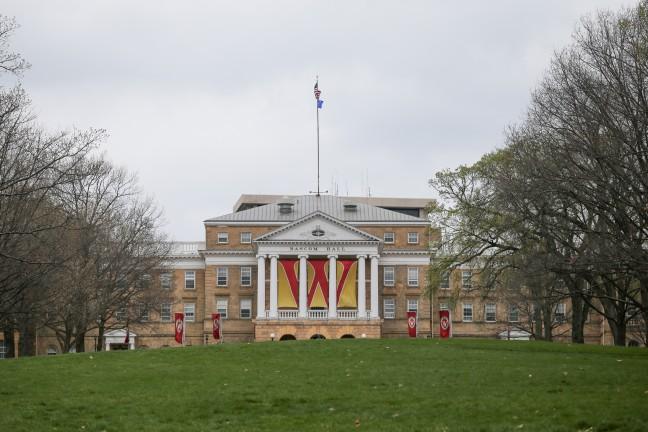A faculty panel gave the University of Wisconsin campus and Madison community different perspectives on the current issues surrounding lesbian, gay, bisexual and transgender bullying Thursday night.
The panel covered topics from how race complicates sexual identity to how more suicides can be prevented.
The UW Center for the Humanities and the UW Hillel foundation co-sponsored the faculty panel “Feeling Queer: Tyler Clementi and the History, Politics and Rhetoric of Bullying,” which discussed the recent suicides of Clementi and five other American youths and the implications of bullying in the LGBT community.
The panel, consisting of UW professors Karma Chavez, Joe Elder and Erica Halverson, along with moderator Kenneth Burns of the Isthmus, led a presentation and ending forum specifically detailing the recent suicides and efforts around the nation to curtail discriminatory violence.
Elder said the recent suicides have probably “created uneasiness on every college campus.”
Along with discussing the campus concerns, the panel brought up the issue of gay-youth identity and how it factors into youth’s hardships in dealing with bullying.
Broadening the issue and realizing the complications of how widespread this issue is outside of the media plays into an even larger hardship in gay people of color and will lead to more solutions, Chavez said.
Elder also quoted many prominent American leader’s opposing views on the subject of homosexuality, and said these negative views make it hard for the LGBT community to come out and be okay with their identities.
“Whenever a country’s prominent leaders say absurd things about this subject, for anybody in the shadows who is debating whether to come out, they are driven even further in the shadows,” Elder said. “People looking at this not as a right, but that it is shameful, is the problem here.”
The panel concluded that while there has been much advancement in resources for LGBT youth, both resources to help in the present and the narratives of others will lead to decreased suicides and LGBT youth feeling much safer in the tough grade school transition time.
After the faculty panel’s statements, Burns turned to the audience for a forum on the current issues.
The main discussion, which received commentary by many in the audience, focused on the issue of how bullying originates in the first place.
Halverson said since the issue is so complex and multi-faceted, the focus still lies in just anti-bullying measures because there is no single variable bullying can be attributed to.
“We don’t know the answer to where bullying starts because it’s complicated. There’s no isolated variable that has yet to be found, and I don’t know if there is such a thing of distilling it down to one variable,” Halverson said.
While the panel and discussion was held at the Hillel Foundation, the audience was a mix of both students and many community members.
UW senior Levi Prombaum said he is frequently at Hillel, and attended because he thought this issue is widespread enough that it needs to be discussed on every campus.
“As one of the audience members said, bullying and displaced human aggression is everywhere, and it’s important to discuss these issues and be conscientious people,” Prombaum said. “Just having this event tonight is an important statement.”












